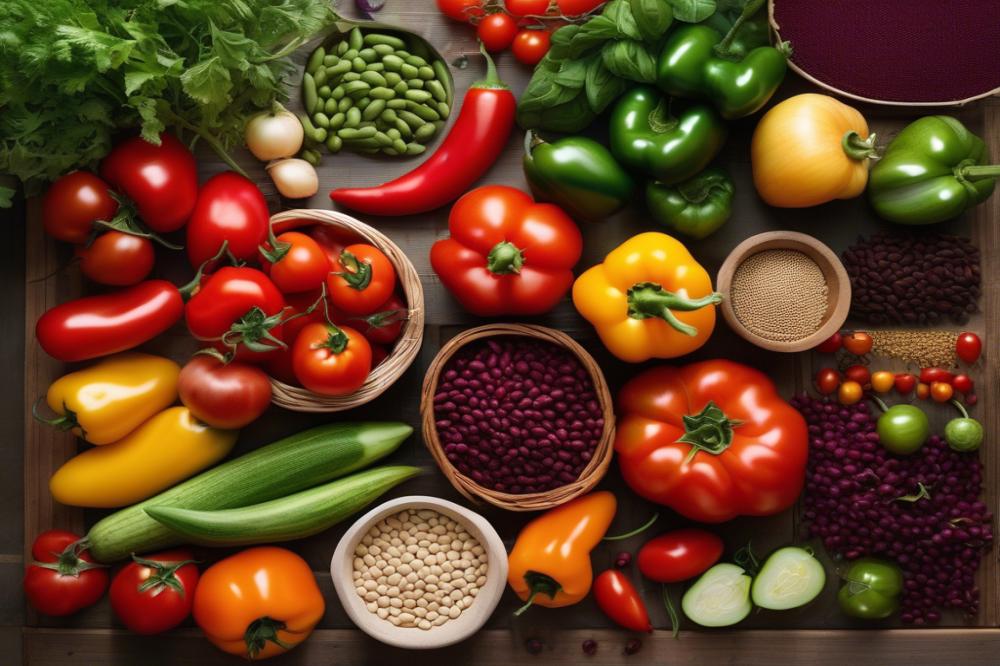Overview of Newtown Pippin Apples
Newtown Pippin Apples hold a special place in the history of American horticulture. This apple variety dates back to the 18th century, renowned for its crisp texture and tangy flavor. Many people appreciate its unique blend of sweetness and tartness, which makes it popular in various culinary uses. Beyond taste, these apples contribute to gardening and fruit cultivation practices that honor the past while embracing sustainability.
Importance of Growing Heirloom Apples

Heirloom apples like these are vital for maintaining biodiversity. These traditional varieties offer flavors often lost in modern hybrid types. Growing heritage fruit helps preserve genetic diversity in agriculture, ensuring that future generations can enjoy a wide range of tastes. Furthermore, heirlooms appeal to the palate of both chefs and home cooks alike.
Purpose of the Article

This article aims to explore the lasting appeal of Newtown Pippin Apples. We will delve into their historical significance and nutritional benefits. Discussions will also include the role they play in promoting sustainable farming practices. Readers can gain insights into the importance of heirloom apples, enriching their understanding of these remarkable fruits.
Historical Significance

Origins of Newtown Pippin Apples
The journey of Newtown Pippin apples starts in the early 18th century. This apple variety originated in Newtown, a neighborhood in Queens, New York. Farmers cultivated these apples for their exceptional flavor and crisp texture. Local legends suggest that this cultivar was discovered by chance, but it soon became popular among gardeners and fruit growers alike. The rich history of these apples has made them a staple in the narrative of American agriculture.
Cultural Impact and Historical Anecdotes
Throughout American history, Newtown Pippin apples have been more than just a fruit. They influenced cuisine and culture from colonial times to the present. Thomas Jefferson was known to grow them at Monticello, highlighting their status among early American leaders. Anecdotes about these apples often mention their presence in pies, ciders, and even as a topic of conversation at dinner tables. Their taste profile combines tartness with sweetness, making them ideal for various culinary uses. Stories of harvest festivals and cider-making events further underline their importance in local traditions.
Role in American Apple Growing Heritage
The Newtown Pippin plays a crucial role in the history of fruit cultivation in the United States. As an heirloom apple, it represents a connection to the past that many modern varieties lack. This apple also contributes to biodiversity, ensuring that the agricultural landscape remains diverse and resilient. Families passed down the knowledge of growing these apples, fostering a community of gardening enthusiasts. Aside from tradition, they offer numerous nutritional benefits, encouraging healthy eating among people. Sustainable farming practices linked to heirloom apples continue to thrive. Growing Newtown Pippin apples creates opportunities for future generations to maintain this essential piece of American heritage.
Taste Profile
The Newtown Pippin apples are celebrated for their delicious flavor and satisfying texture. These heirloom apples boast a balance of sweetness and tartness that intrigues the palate. Crisp and juicy, their flesh is firm yet tender, making every bite a delightful experience. When you bite into one, the immediate burst of flavor is both refreshing and complex.
In comparison with other apple varieties, Newtown Pippins hold their own remarkably well. For instance, Granny Smith apples lean more toward tartness and have a firmer texture. Meanwhile, Fuji apples tend to be sweeter, but lack the depth of flavor found in Newtown Pippins. The prominent honeyed undertones of the latter truly set them apart, offering a distinct taste that has delighted generations.
Versatility in Culinary Uses
Cooks and gardeners alike appreciate these apples for their adaptability in the kitchen. Many recipes highlight their robust flavor, from sauces and pies to salads and ciders. Their ability to retain flavor during cooking makes them ideal for baking. A Newtown Pippin pie brings warmth into any gathering, showcasing this apple variety’s historical significance.
Additionally, the nutritional benefits contribute to their appeal. Packed with vitamins, antioxidants, and dietary fiber, these apples support a healthy diet. Both home cooks and professional chefs utilize them as a staple in various culinary traditions. Using them in savory dishes adds an unexpected twist that elevates meals.
Interest in sustainable farming practices has led to a renewed focus on fruit cultivation, particularly for heirloom varieties like the Newtown Pippin. Protecting this biodiversity not only preserves valuable flavors but also enhances agricultural resilience. As more consumers seek sustainable options, these apples stand out for their rich heritage and strong taste profile.
Cultivation and Gardening
Best practices for growing Newtown Pippin Apples
Growing this apple variety takes a bit of patience and care. First, it’s essential to choose the right location. These trees thrive in full sunlight, so a spot that receives at least six hours of direct sunlight each day is ideal. Proper air circulation around the trees also contributes to their health. Spacing is important too; trees should be planted at least 15 to 20 feet apart to promote growth and prevent overcrowding. Pruning plays a role as well. Regularly removing dead or overcrowded branches helps improve air flow and encourages strong fruit production.
Soil requirements and planting conditions
Soil quality directly affects the health of heirloom apples like the Newtown Pippin. These trees prefer well-draining soil that is rich in organic matter. A pH level of 6.0 to 7.0 is optimal for healthy growth. If the soil is too acidic, it can hinder nutrient absorption. Many gardeners improve soil quality by incorporating compost or well-rotted manure. Such measures support biodiversity and provide essential nutrients. Before planting, it is advisable to conduct a soil test. This helps in understanding nutrient levels and making necessary adjustments.
Pest management and sustainable farming techniques
Managing pests is a crucial aspect of successful fruit cultivation. Integrated Pest Management (IPM) is an effective approach. This includes monitoring pest populations and applying non-toxic methods before resorting to chemical controls. Companion planting can deter pests naturally. For instance, planting marigolds nearby can help repel harmful insects. Moreover, promoting biodiversity through the introduction of beneficial insects can play a significant role in pest control. Sustainable farming practices are vital. Using organic fertilizers and compost instead of synthetic chemicals not only supports tree health but also enhances the nutritional benefits of the apples. Regular monitoring throughout the growing season is key, as it allows for timely interventions.
In conclusion, with the right knowledge and techniques, cultivating these apples can be both fruitful and rewarding.
Nutritional Benefits
The health advantages of Newtown Pippin apples make them a valuable addition to any diet. High in dietary fiber, they support digestive health and help maintain a healthy weight. Antioxidants in this apple variety are well-known for combating free radicals in the body, which can lead to chronic diseases.
Nutritional Profile Analysis
Let’s delve into the rich nutritional profile of heirloom apples, particularly this classic cultivar. One medium-sized apple typically contains about 95 calories, making it a low-calorie snack. In addition, it provides ample vitamin C, which bolsters the immune system and enhances skin health. Potassium, found in this fruit, plays a vital role in muscle function and blood pressure regulation. Moreover, the balance of natural sugars creates a satisfying sweetness without overloading on calories. This balance highlights why this historical variety continues to be sought after.
Importance in a Balanced Diet
Including this apple in meals can enhance nutritional diversity, crucial for a balanced diet. Its crisp texture and refreshing flavor can boost the appeal of salads or snacks. Versatile culinary uses ensure that it fits well in both sweet and savory dishes. Furthermore, promoting biodiversity through the cultivation of heirloom varieties supports sustainable farming practices. Gardening enthusiasts appreciate heirloom apples not only for taste but also for their rich heritage. As consumers become more health-conscious, embracing traditional options like these helps maintain a connection to the past while promoting wellness.
Biodiversity and Heirloom Apples
Role of Newtown Pippin in Biodiversity
Newtown Pippin apples contribute significantly to biodiversity. This heirloom variety represents a slice of agricultural history. As one of the oldest cultivated apple types, it showcases a diverse genetic lineage. Varieties like this are essential for maintaining healthy ecosystems. They act as a buffer against diseases that could threaten more common apple types. Cultivating such unique fruit helps preserve agricultural variety.
Preservation of Heirloom Apple Varieties
Heirloom apples, including Newtown Pippin, hold historical significance beyond just taste. Many people grow these varieties to keep traditions alive. Home gardeners are increasingly interested in cultivating heirloom types. They often choose to plant these trees for their rich flavors and unique characteristics. Such efforts play a crucial role in keeping biodiversity flourishing. In many cases, heirloom apples provide cultural stories tied to specific regions and traditions.
Impact on Local Ecosystems and Gardening Practices
The presence of diverse apple varieties affects local ecosystems positively. For example, different apples attract various pollinators. This can bolster populations of bees and other insects. Many gardeners are now returning to traditional practices. More individuals are realizing that planting heirloom apples contributes to a healthier garden. The culinary uses of such apples are endless, adding excitement to home cooking. Additionally, they possess notable nutritional benefits. Choosing sustainable farming methods ensures these varieties can flourish for future generations. The educational aspect of gardening with heirloom apples can inspire communities. Connecting with local history through gardening fosters a deeper appreciation for nature.
Final Thoughts on an Enduring Legacy
Summary of Key Points
Heritage apples carry stories from the past. These fruits, especially one from Newtown, offer flavors that have delighted taste buds for generations. Growing them not only reconnects us with history but also supports biodiversity. The rich taste appeals to many, and its ability to thrive in various conditions showcases its adaptability.
Encouragement to Grow
Consider planting one of these apple varieties in your own garden. They not only bear delicious fruit but also create a living tribute to our agricultural roots. Cultivating these apples can foster a deeper understanding of our food system and its history. Each tree serves as a reminder of the importance of preserving such varieties. Delight in the process and share the juicy harvest with friends and family.
The Importance of Preservation
Preserving heritage apples is vital, considering their historical significance. Each bite transports us to a time when flavors were diverse and local farms thrived. Supporting the growth of these old varieties promotes ecological health and agricultural resilience. Future generations deserve to experience the tastes we sometimes take for granted. Embracing such apples contributes to rich culinary traditions. Their survival hinges on our willingness to grow and cherish them.



